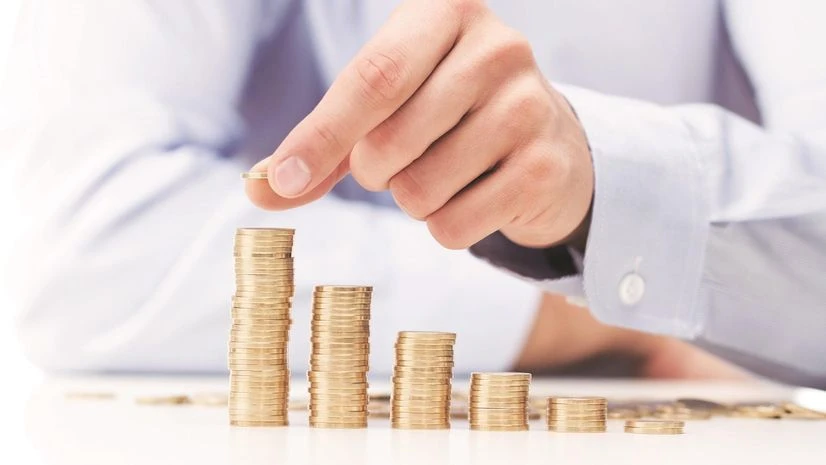Indians have managed financial challenges far better compared to other global markets, reporting they were less impacted by the cost of living crisis arising in several parts of the world post-Covid pandemic, according to the Ipsos Cost of Living Monitor survey for November 2024. However, Indians are concerned about growing cost pressures, with 22 per cent of respondents fearing that their disposable incomes will decline over the next year, and more than 62 per cent anticipate a rise in food prices.
"India, due to its population dividend and a large reliance on domestic consumption is better off than most of the markets covered in the survey. Even on inflation, India is placed amongst the lowest. More number of Indians claimed to be coping well, or just about getting by,” stated Amit Adarkar, CEO, Ipsos India.
"Free rations for the poor, subsidy in dava khanas run by the govt, keeping oil prices in control, Ayushman Bharat Pradhan Mantri Jan Arogya Yojna, have all softened the blow of high cost of living on the economically weakened and the masses," Adarkar added, explaining the disparity between Indian market and the rest of the world.
How are Indians doing financially post pandemic?
According to the survey, 19 per cent of the respondents reported living comfortably, 34 per cent claimed to be doing alright, 20 per cent were just about getting by, and only 22 per cent found it difficult to cope.
Moreover, 40 per cent of urban Indians felt they were financially better off than in 2020, during the peak of the Covid-19 pandemic, while 25 per cent saw no change, and 19 per cent believed their situation had worsened.
Also Read
Inflation concerns persist
Indians remain cautious about inflation, with 45 per cent expressing doubts that it will ever return to normal, the survey suggests.
However, 20 per cent are optimistic that inflation will stabilise after next year, 12 per cent foresee normalisation within a year, 9 per cent in six months, 6 per cent in three months, and 7 per cent believe it has already stabilised.
Despite these varying views, a majority of urban Indians (54 per cent) expect inflation to rise further in the next year, mirroring the sentiment of 65 per cent of global citizens.
What are some possible solutions to addressing inflation?
Indians are split on addressing inflation. While 28 per cent support tax cuts for individuals alongside reduced government spending on public services, an equal proportion believe the government should increase spending on public services, even if it requires higher taxes, the survey suggests.
This division highlights the challenge of balancing fiscal measures and public welfare.
Household expenditure expected to rise
The survey found that 45 per cent Indians feared that inflation would never normalise and household expenses would rise. There is a widespread expectation of rising costs across multiple household categories over the next six months.
These include:
- Food prices: 62 per cent expect an increase.
- Utilities (gas, electricity): 61 per cent predict a rise.
- Household shopping: 61 per cent foresee higher costs.
- Motoring fuel (diesel, petrol): 59 per cent anticipate price hikes.
- Socialising (cinemas, cafes, restaurants): 56 per cent expect increased expenses.
- Rent/mortgage costs: 56 per cent foresee rises, higher than the global average of 44 per cent.
- Subscriptions: 53 per cent expect subscription costs to climb.
Why is the cost of living rising?
Respondents cited the following factors contributing to the rising cost of living:
- Workers demanding pay increases (55 per cent)
- Excessive business profits (54 per cent)
- High interest rates (53 per cent)
- National government policies (52 per cent)
- Russian invasion of Ukraine and its global consequences (52 per cent)
- Immigration into the country (51 per cent)
- Lingering effects of the Covid-19 pandemic (50 per cent)
- Overall state of the global economy (50 per cent)
Commenting on these findings, Ipsos India CEO Amit Adarkar said, "High cost of living has been both an urban and rural phenomena and has added pressure on household budgets and discretionary spends of citizens. While the world was still in the recovery mode after the gruesome pandemic, the wars in Ukraine and Gaza have further slowed down the global and local economies and upset household budgets with prices of essential commodities continuously rising."
The findings are based on a 32-country survey conducted between October 25 and November 8, 2024. Ipsos interviewed 22,720 adults across countries using its Global Advisor online platform and, in India, its IndiaBus platform. Participants ranged from 16 to 74 years old, depending on the country.
India's most recent reports indicate that retail inflation fell to 5.53 per cent in November 2024, down from 6.21 per cent in October. The drop was attributed to rising food costs. Despite this, the Reserve Bank of India (RBI) chose to maintain the interest rate at 6.5 per cent.
While the RBI downgraded its growth forecast for the financial year 2024-25 to 6.6 per cent from 7.2 per cent, it anticipates inflation to ease by January-March quarter. The findings of the Ipsos survey, however, show that consumers are far more skeptical and cautious when it comes to inflation in the near future.

)